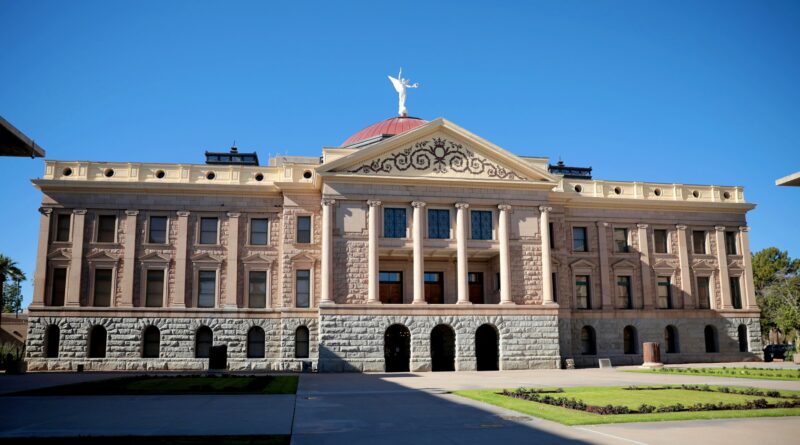Still work to be done for business community as Legislature takes pause
The state Legislature has hit the pause button on legislative activity while negotiations progress on the state budget and other thorny issues. The state House will be out until May 20, the Senate until May 28.
But that doesn’t mean that the state business community’s leading advocacy group isn’t still pursuing some of its goals for the session.
“We are getting down to crunch time,” said Courtney Coolidge, the executive vice president for the Arizona Chamber of Commerce & Industry. “While some important bills have made their way to the governor’s desk, there is still a lot of work to be done that the state’s job creators care about.”
The state budget
Adopting a state budget is the only constitutionally mandated task of the state Legislature, and it needs to get done before the conclusion of the fiscal year on June 30 to avert a funding lapse.
Negotiations thus far have been slow going.
“We want the Legislature and governor to come together on a responsible, fiscally sound spending plan,” Coolidge said. “That means meeting core government responsibilities while maintaining spending levels that can adjust to this period of economic uncertainty.”
Diamondbacks and Chase Field
The Chamber is also a leading member of a coalition urging the Legislature to craft a funding mechanism for repairs at Chase Field, home of the Arizona Diamondbacks and special events like concerts, college bowl games, and more.
“We believe a deal to ensure that Chase Field remains a premier venue and that the Diamondbacks remain in downtown Phoenix is within reach,” Coolidge said.
Proposition 123
The Arizona Chamber was a leading proponent of Proposition 123’s passage in 2016 and has been vocal in urging the Legislature to extend the measure that is responsible for injecting a new funding stream into K-12 schools by tapping an increased percentage of the state land trust.
What form an extension takes will be left to voters, and any lapse in funding until a renewal passes will be borne by the state general fund.
“We believe Proposition 123 has proven to be a resounding success and deserves to be renewed,” Coolidge said. “As lawmakers work on the proposal that will be sent to voters, we would tend to believe that the simpler the question put on the ballot, the more likely it is to pass. New elements wrapped up in the extension could attract some voters but could also repel them. Proposition 123 originally passed by a narrow margin, so we don’t want to take anything for granted in assuming a new version will pass.”
Tort reform
The Chamber is also continuing to work on priority legislation separate from the budget and Proposition 123, including an important civil justice reform that will improve the state’s legal environment.
The Chamber and broader business community support legislation that would add greater transparency to the practice of third-party litigation financing, or TPLF, and prohibit foreign adversaries from weaponizing our justice system.
With TPLF, outside parties bankroll all or parts of a lawsuit in exchange for a portion of the proceeds following judgment or settlement, often without the knowledge of the defendant, counsel, or the judge. The insertion into a lawsuit of an outside lender risks extending the length of litigation and increasing legal costs, even when a fair settlement is on the table.
“More states are attempting to shine a light on TPLF, including Georgia, which earlier this year passed a tort reform package that added greater transparency to the practice. Arizona should join them,” Coolidge said. “We’ll continue to work with leadership to craft language that ensures Arizona’s legal system isn’t overburdened with unnecessary, expensive lawsuits that increase the cost of doing business.”

